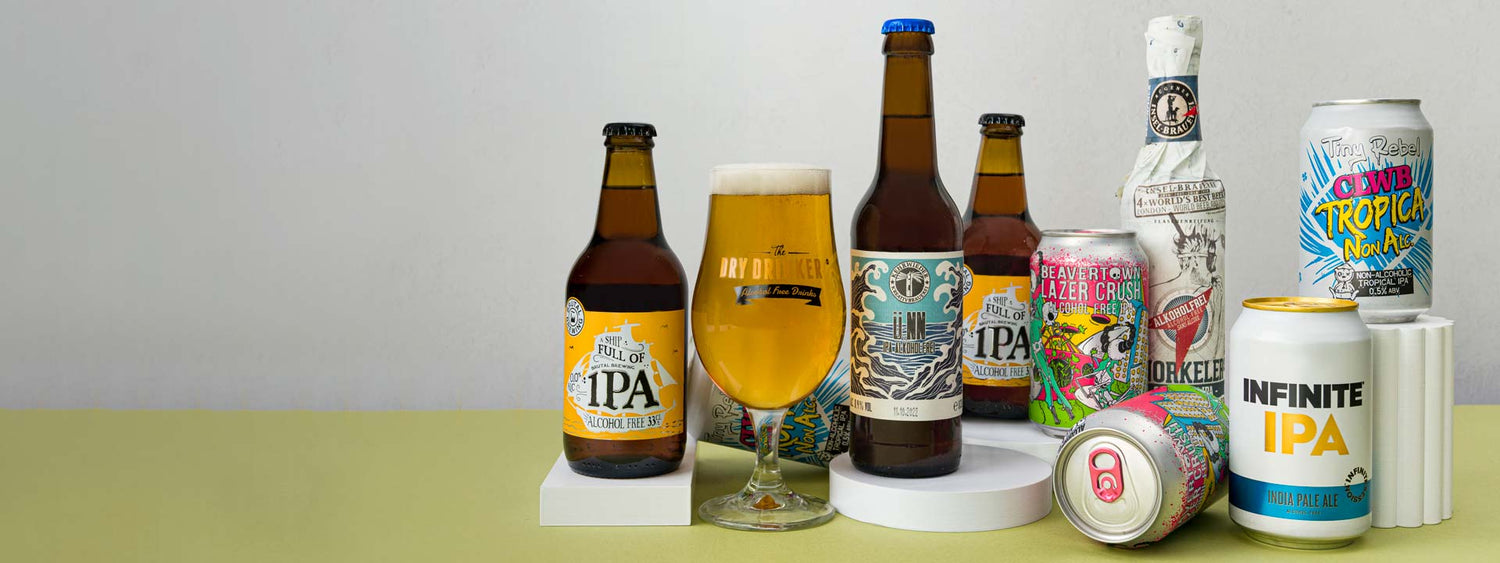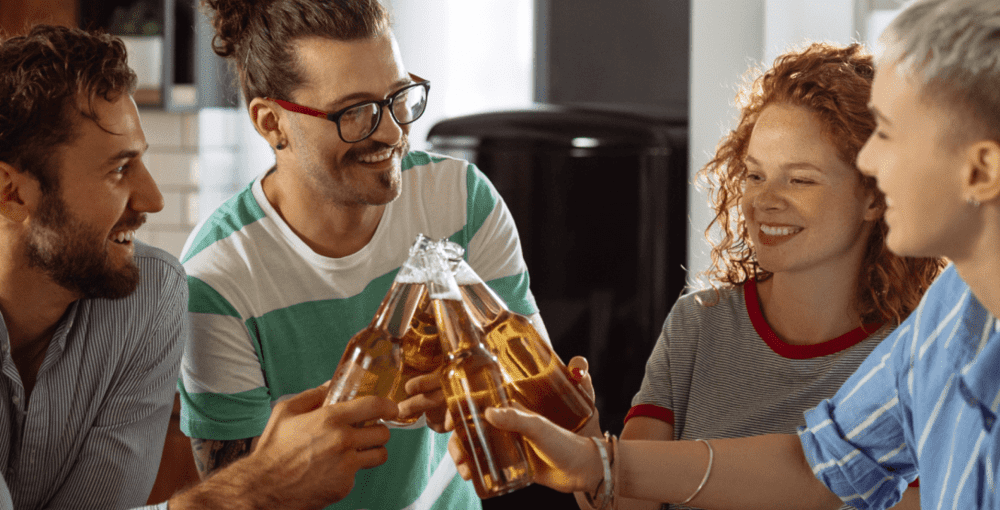It’s probably safe to say at this point that kombucha, once the exclusive domain of Shoreditch hipsters, has now made the leap into the mainstream. It can be found everywhere, from bars to supermarket shelves, not to mention here on the pages of your favourite non-alcoholic online shop. However, one perplexing hangover remains. The media, always keen to linger on the World of the Strange, remains infatuated with spine-shuddering pictures of scobys, and are as likely to look at gut health as a leading story. While the health aspects are undoubtedly important, they’re still convinced that this amazing drink is a peculiarity. To our minds, they’re missing the point. The real story, as far as we’re concerned, is how kombucha, when brewed well, can really change the way people drink.
We don’t say that lightly, either. Spend time with the Real Kombucha team when they’re out and about in their Booch Bus and you’ll hear evidence first-hand. The Real Kombucha range is such that people often assume they’re supping alcohol, and are dumbfounded to find that they’re actually consuming a non alcoholic drink that weighs lightly in calories and sugar. As they drink more, an idea begins to germinate. “I’m so glad I found this,” they say. “This means I can cut down on the amount of wine I drink.”
And that’s exactly how the founder, David Begg, reacted the first time that he tried the drink. “I first tried kombucha when a great friend of mine passed me a glass of his home brew across the table over dinner,” he recalls. “It was absolutely love at first sip. I couldn’t believe that this full flavoured brew was non-alcoholic. So, he gave me some kombucha culture to try brewing my own, and my obsession commenced. I had (almost) given up alcohol a couple of years previously, and since being off the alcohol, there was a really big hole in my foodie life. Water just doesn’t cut it with a great meal, but a well-brewed kombucha can really add something.”
David and his growing team experimented with around 150 teas before deciding on the three that make up their current range. Importantly (and rarely for non-drinkers), each suits a specific drinking occasion, and each can be compared to specific kinds of alcohol that have traditionally been offered in certain situations.
“We think of our Royal Flush as our full-bodied white wine or champagne,” explains David. “As it is fruity and bubbly it is a great replacement for champagne or prosecco as a celebration drink or as an aperitif. We brew it from First Flush Darjeeling, known in India as the Queen of Teas. The first two tips of the tea plant, picked as they emerge in the first bloom of spring, are dried carefully to tease out a character closer to a delicate white tea.”
“Our Dry Dragon works as a really dry Sauvignon Blanc – tart with notes of grapefruit and lemon. We brew it out of Dragonwell pan-fried green tea from Zhejiang Province in China. The fresh leaves are wiped around a piping hot wok to stop the natural oxidation process early. Unlike Japanese green teas, steamed to give a distinct grassy flavour, Dragonwell reveals more complex nutty and straw-like flavours. We talk about it as our ‘all-day’ drink.
You can have a bottle of this with your breakfast, or you can sup it in the way you might have a glass of wine in the evening.”
“Last, but by no means least, Smoke House is our most complex brew. As I said earlier, black teas tend to ferment to give notes of apple and caramel, but we have selected a Yunnan tea that has a delicate smokiness that comes through in the final ferment. The tea is grown in the high mountains of southern China by smaller, permaculture plantations. The growers climb the ancient, fully-grown trees to pick the finest leaves. Those smokey, apple and caramel flavours give you the sense that you’re drinking a delicious, earthy cider. It’s a great end-of-a-long-day drink.”
As more and more people look for an alternative to alcohol (statistics show that around 30% of Londoners between 18 and 24 say they’re teetotal), there has been a marked increase in the number of non-alcoholic options available. Most are traditional boozy drinks with the alcohol removed. In the case of kombucha, however, there’s a whole a new avenue to explore. The Real Kombucha team think of their brews in the same way that wine makers view wine: if you truly understand the ingredients and the process – where they come from, how different teas ferment, which flavours can be drawn from which leaves – and you give them the respect they deserve, then there’s no reason why kombucha shouldn’t be seen as an exquisite, high-end drink in its own right.
As the Real Kombucha tagline suggests, it’s a drink “brewed for open-minds”. Perhaps it’s time you took a step off the beaten track and explored this emerging world.



